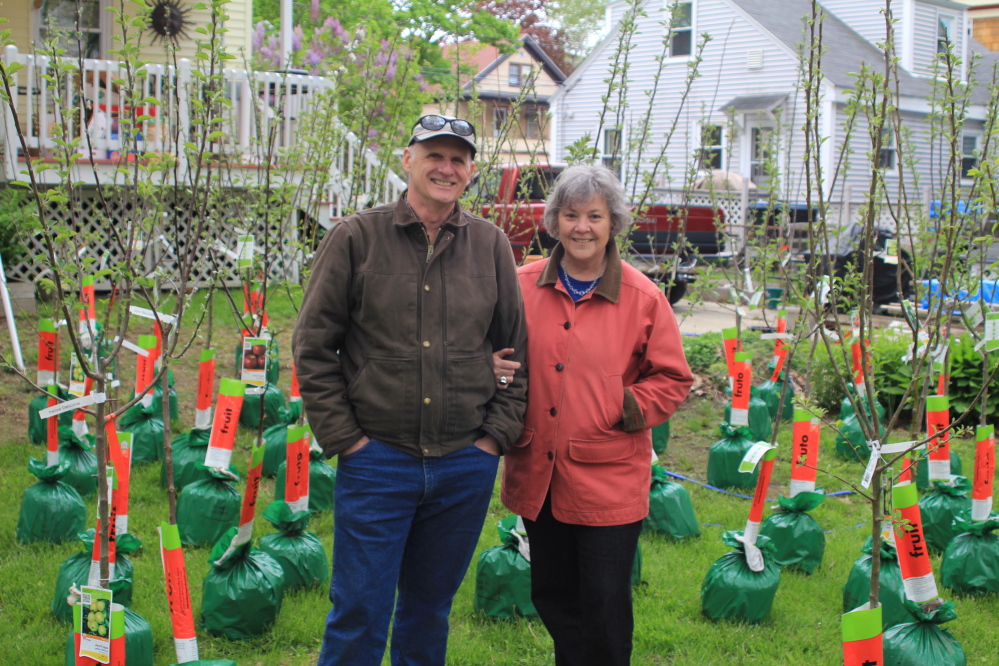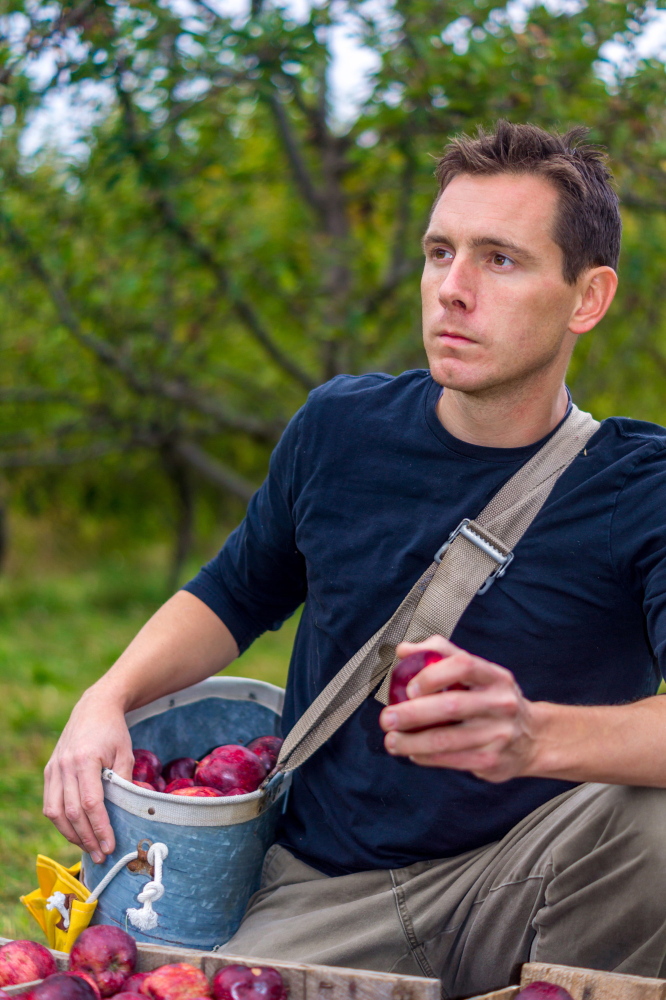A lone apple tree growing in the middle of a vacant lot in a big city, its boughs bright with improbable fruit. It’s a lovely, hopeful image – like something out of a child’s storybook.
But for Portland filmmaker Matthew Byron and others like him, that vision is a daily reality – and, he says, a potent solution for many of America’s nutrition woes. It’s the subject of Byron’s new documentary “Orchard Revolution,” which has its world premiere at 4:30 p.m. Sunday at Cinemagic in Westbrook, and which lays out a unique strategy for ordinary people to change their way of eating and obtaining food.
“I have a background in health care consulting for a government agency at a pretty high level,” explains Byron. “I just grew frustrated at how it operates. In Portland I found a horticulture movement that was planting trees and growing greater awareness about being sustainable, about buying locally and growing locally. And that merged with my personal interest in the subjects.”
The statistics Byron uses to back up his call for Americans to action are daunting, with an estimated 35 percent of Americans classified as obese and cases of diabetes growing each year.
So, the solution is to plant trees? Byron says yes.
“Planting fruit trees to alleviate these problems is a long-term solution,” he asserts. “It’s not a panacea, but it seems to be the most practical solution. Anyone can do it – in the movie, it’s kids, it’s old people, entire neighborhoods planting trees. It’s financially viable, environmentally friendly and addresses so many things at once – plus, it requires practically no maintenance at all.”
Apart from the aforementioned benefits to weight management and nutrition, Byron cites a few less obvious advantages, especially for those of us who live in cities.
“The widespread consensus is for healthier eating and exercise. But a lot of time, people are in what are called urban food deserts. People with no access to fresh local produce, they end up buying high-carbohydrate, high-sugar products. Cheap food, but it’s trash and destroying their health.”
But, speaking of that whole “urban food desert” thing – what about people like me, renters without a scrap of land to call our own? Well, apart from the fact that Byron’s in the same boat (“I have banana trees growing on my windowsill”), he cites groups like the London Orchard Project in England (thelondonorchardproject.org) and Seattle’s Beacon Food Forest (beacon foodforest.org) that have successfully planted viable, food-producing orchards in those cities’ sparse open spaces – sometimes using, shall we say, creative methods.
“It’s called guerrilla growing,” Byron explains. “And while in the film we don’t encourage people to do anything illegal, there have been fruit trees planted on public land all over the world.”
And what about the mean, sparsely fruited plains of Portland? Byron cites the work of Portland’s own Resilience Hub (resiliencehub.wordpress.com), which has been spreading the message – and some good fertilizer – all over the city.
“For example, on Rosemont Avenue in Portland, Alastair Lough and his wife Pat bought 49 fruit trees. They organized and 25 to 30 people turned out, bought the trees from them at cost, and now those trees are all growing on private property on Rosemont Avenue. It’s exciting, and it’s just the beginning.”
Matthew Byron will be on hand for a Q&A at Cinemagic in Westbrook on Sunday following the world premiere screening of “Orchard Revolution.” Check orchardrevolution.com for details.
Dennis Perkins is a Portland freelance writer.
Send questions/comments to the editors.




Success. Please wait for the page to reload. If the page does not reload within 5 seconds, please refresh the page.
Enter your email and password to access comments.
Hi, to comment on stories you must . This profile is in addition to your subscription and website login.
Already have a commenting profile? .
Invalid username/password.
Please check your email to confirm and complete your registration.
Only subscribers are eligible to post comments. Please subscribe or login first for digital access. Here’s why.
Use the form below to reset your password. When you've submitted your account email, we will send an email with a reset code.